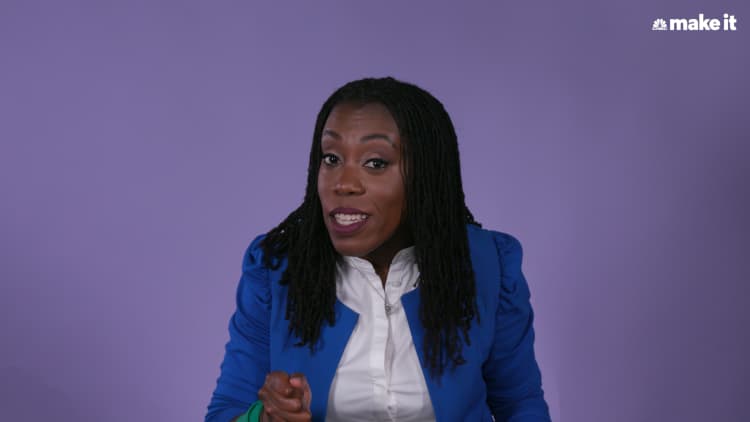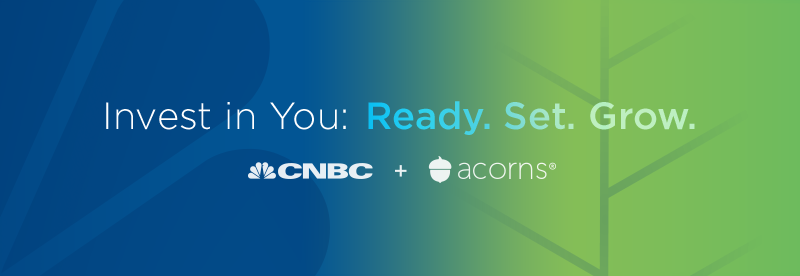Even if you're in debt, you can still go out to eat, or buy that expensive pair of sneakers or even go on vacation.
That's true even for millennials (ages 23 to 38) who are constantly being scolded for spending too much when they may have student loans and other debts, says Tiffany Aliche, personal finance expert and founder of The Budgetnista
"Don't let the old folks tell you that you can't have good things. You can," Aliche tells CNBC Make It. That said, you need to spend responsibly, she adds. "What you really deserve is to be able to enjoy life and to be able to afford the life that you want to enjoy."
To help you figure out if it's OK to spend money on something you want, Aliche recommends asking yourself five questions about the state of your finances.
1. Do you pay your bills on time?
Last year, almost half of American, 46%, were late paying their bills, according to a report by the Aite Group, which is sponsored by ACI Worldwide and Visa. And that can have some severe consequences, including fees, interest charges and discontinued service.
"Let's face it, nobody wants to come home from vacation to an eviction notice on their door," Aliche says. So make sure that your bills are paid on time before you make any big purchases.
2. Are you contributing toward retirement?
"You don't have to be contributing thousands and thousands of dollars a month," Aliche says. But you do need to be making consistent contributions toward your future, either through your employer's retirement plan such as a 401(k) or 403(b) or an individual retirement account.
If you do have the option to contribute to a 401(k), you can save up to $19,000 as an individual under the age of 50. If you can't max it out, aim to at least put away enough to take advantage of any employer match, a program where your employer contributes the same amount that you do to your 401(k), up to a certain percentage.
For example, if you put 5% of your salary into your 401(k), your employer also contribute 5%. If you make $60,000 a year that's basically a $3,000 raise. But you only get that money if you're investing in your employer's retirement program. The median matching level is 4% among Vanguard 401(k) plans.
3. Do you have a debt payoff plan in place?
If you have debt, whether it's student loans, a mortgage, a car loan or a credit card balance, you need a plan to pay it off.
The first step toward making headway on your debt: Take inventory. A full 34% of Americans don't know how much of their monthly income is going toward debt, according to Northwestern Mutual's 2019 Planning & Progress Study.
Once you know what you're dealing with, come up with a plan to pay down your debts and set up a budget that works with your strategy. You can use either the so-called "avalanche method," where you start by paying off the debt with the highest interest rate, or the "snowball method," where you start with the smallest balance, pay it off, and then work your way toward tackling the biggest debts.
Does it mean that you have to be debt-free before making your planned purchase? No, Aliche says. "But there should be an automated plan in place," she adds. And you need to be sticking to that plan every month, or every paycheck, so that you're chipping away at your balances.
More from Invest in You:
A few tiny tweaks can make a huge difference in your finances
Good financial habits will only get you so far on the road to riches
You'll probably regret that timeshare or monthly car payment
4. Are you consistently saving?
It could be $5 a month. It could be $20. It could be $100, or even $1,000. But Aliche says it's important to consistently and automatically put money away into a rainy day fund. Most experts recommend that you should try to have between three and six months of living expenses saved up.
The best place to deposit that savings is in an online savings account because it makes your money a little more inconvenient to access, Aliche says. "And inconvenient money gets saved," she says. Plus, these banks usually pay a higher interest rate than the regular brick and mortar banks.
5. Is this fun, amazing thing going to put you further in debt?
You can ask yourself this question about any big purchase — an expensive pair of shoes, a concert ticket, etc — but it's especially important to ask yourself before making plans to go on vacations.
If you go on vacation, are you still going to be paying for that trip when you're back home? That's not such a great idea, Aliche says. Instead, start saving up for the trip ahead of time. You don't want to put a plane ticket, hotel and food on a credit card and then spend months trying to pay it down.
If you can say "yes" to the first four questions and no to the last question, then that means you can have the thing that you want guilt-free, Aliche says.
"Money is a tool," she says. "I want you to think to yourself that your money is a hammer that you have in your hand, and this hammer can be used to destroy your financial house. And that same hammer can be used to build your financial house."
But don't let anyone make you feel guilty about the way you choose to use your hammer. "If it's in alignment with how you want to show up in your life, don't let anyone make you feel bad about using your money in a way that brings you joy," Aliche says.
CHECK OUT: Save hundreds of dollars a month by learning 3 easy skills via Grow with Acorns+CNBC.
Disclosure: NBCUniversal and Comcast Ventures are investors in Acorns.








